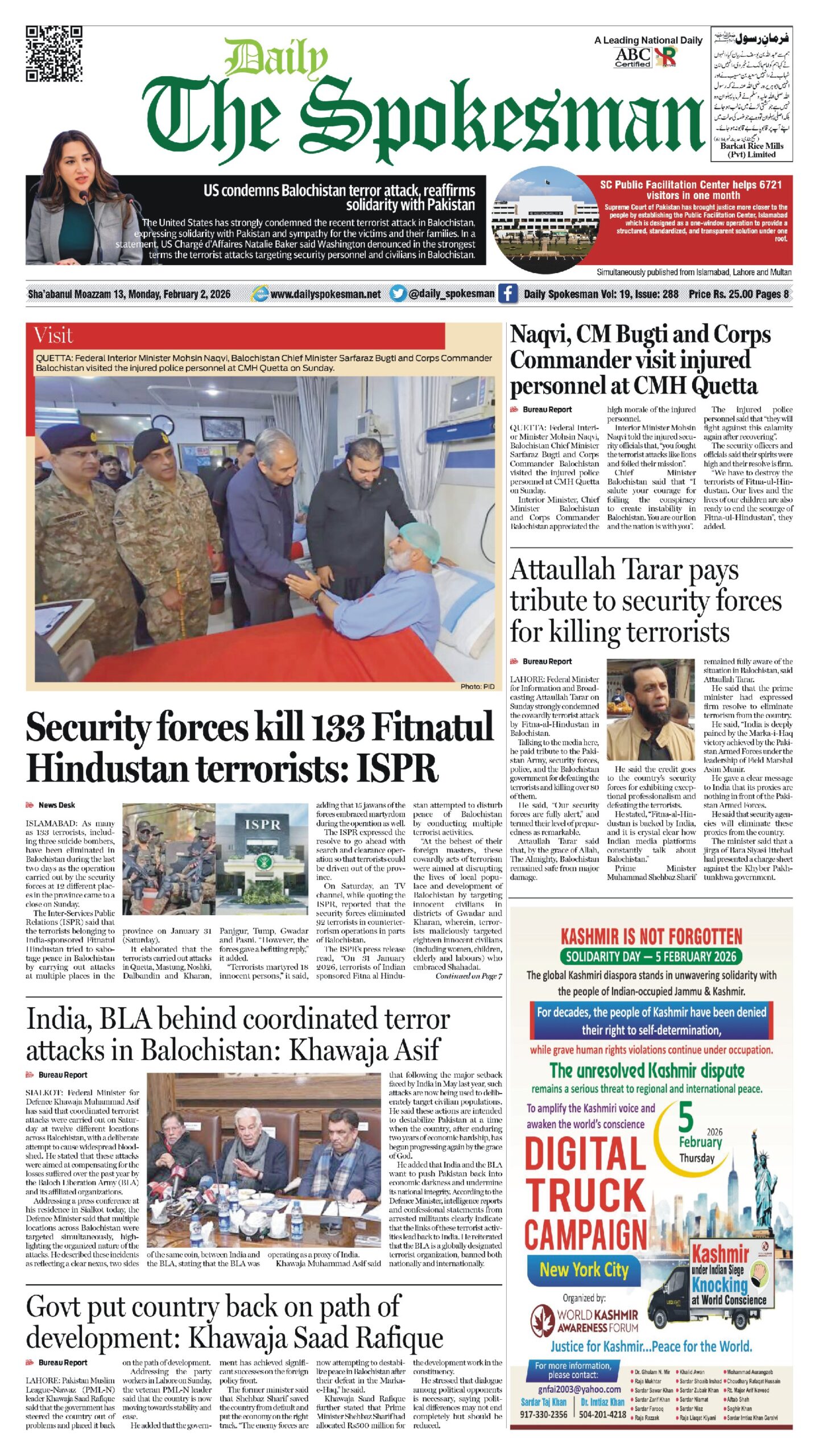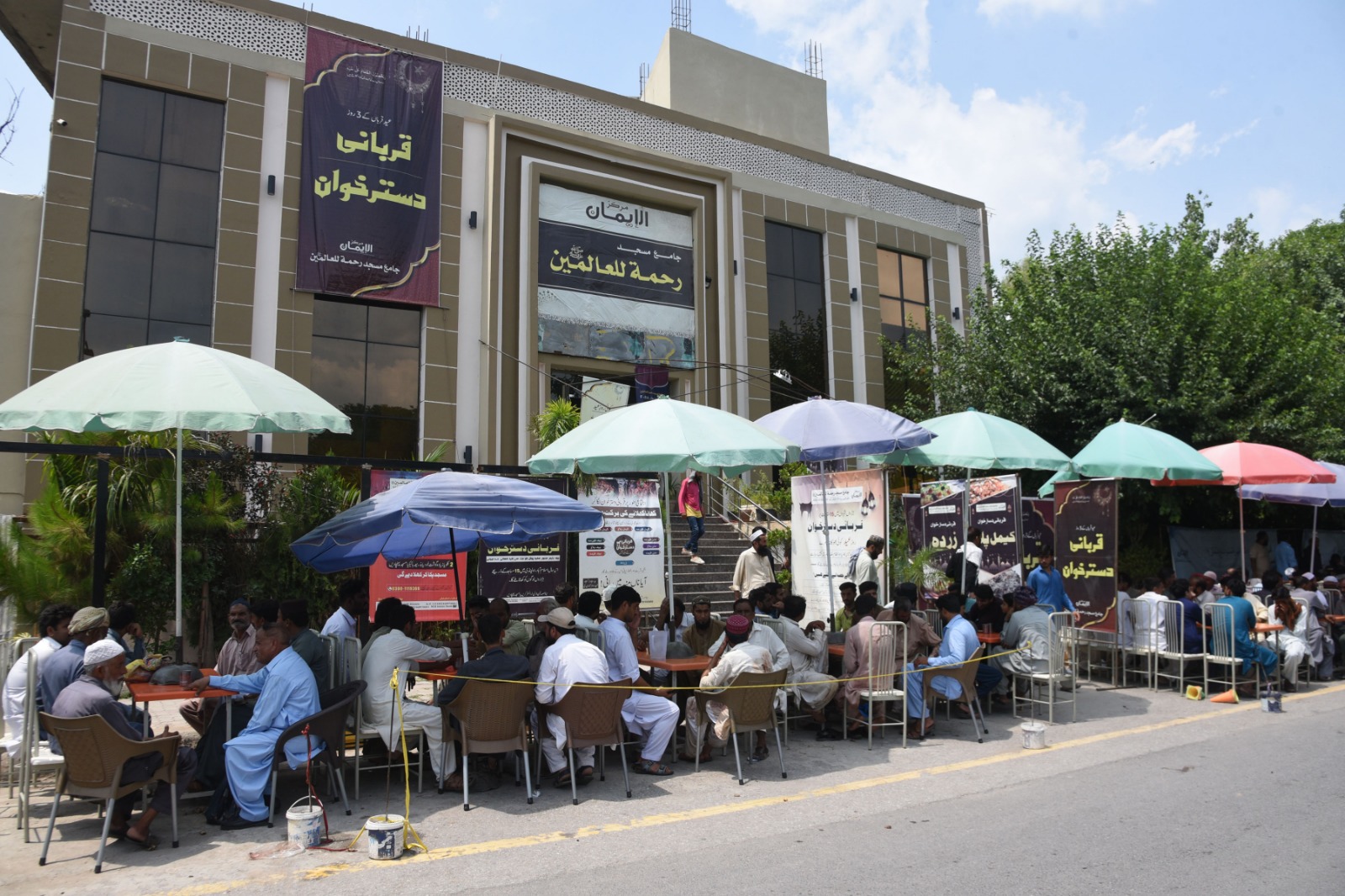
By Naveed Ahmad Khan Photo Raja Farid
Islamabad: In extremely hard times of poverty, unemployment, low wages and ever escalating rate of inflation, poor people are suffering the most. To offer solace and relief to such needy ones, Masjid Rehmat-ul-lil-Alameen located at F/8- 4 Main Nazim-ud-Din Road served the meals to the thousands deserving and those who cannot afford to buy food ––with dignity and upholding their self-respect on the occasion of Eid-ul-Adha under the slogan that, “No one should go hungry”.
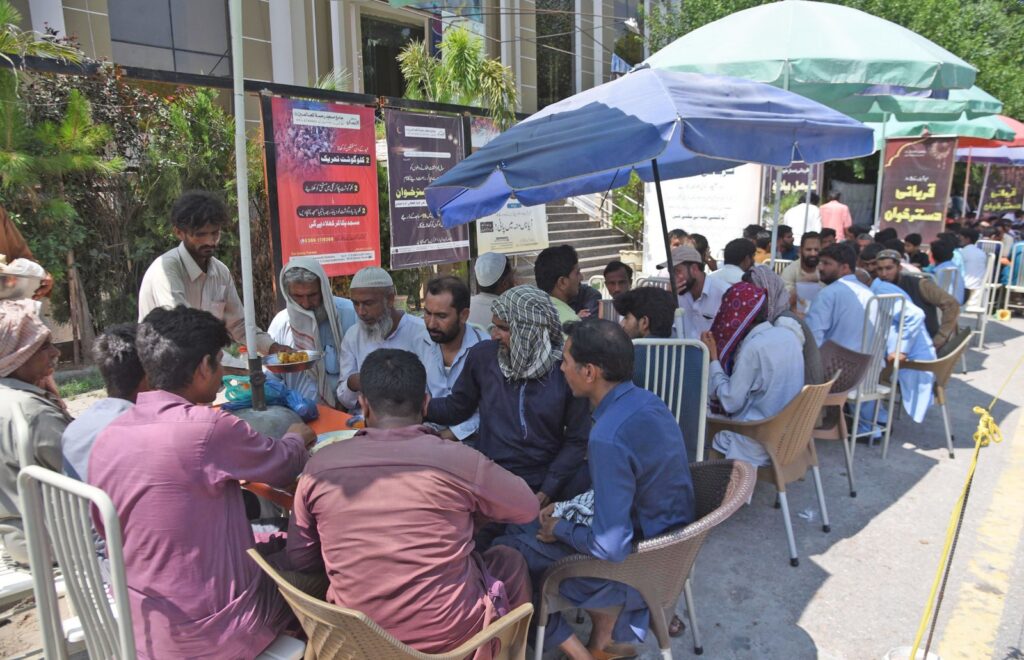 The administration has started a novel way by avoiding distribution of meat and cooking all the meat to distribute it in various masjids from where it is served to the needy, including men, women, and kids.
The administration has started a novel way by avoiding distribution of meat and cooking all the meat to distribute it in various masjids from where it is served to the needy, including men, women, and kids.
Food was offered to the poor for three days, while the people of the area also participated in this by contributing meat.
 Khateeb Jamia Masjid Rehmat-ul-lil-Alameen, Dr. Ubaid-ur-Rehman Basher informed that many of the laborers living in Islamabad have no way to keep meat safe and cook it therefore we are doing it for them.
Khateeb Jamia Masjid Rehmat-ul-lil-Alameen, Dr. Ubaid-ur-Rehman Basher informed that many of the laborers living in Islamabad have no way to keep meat safe and cook it therefore we are doing it for them.
Earlier, the Jamia Masjid Rehmat ul Alamin has established a free-of-charge marriage hall to help deserving families celebrate their daughters’ weddings with respect and dignity. This compassionate initiative aims to make the special day of deserving families even more memorable by providing a free-of-charge marriage hall equipped with a stage for the bride and groom, as well as crockery, tables, chairs, and trained waiters to serve food to the guests of orphan and deserving brides.
Furthermore, the initiative ensures that newlywed brides are sent to their new homes with respect and dignity. This compassionate initiative by Jamia Masjid Rehmat ul Alamin F/8, Islamabad aims to provide deserving families with a memorable and dignified wedding experience, besides alleviating the financial burden on poor families and enabling them to celebrate their special occasion with joy and honour.
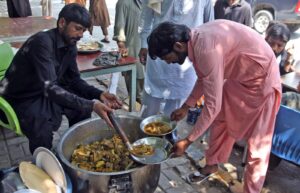 The hall has a three-hour time limit and includes a stage for the bride and groom. The mosque management allows parents to either solemnize the Nikkah of their daughter themselves or choose a Khateeb of their choice for the ceremony. To book the hall, deserving parents can contact the mosque management committee. Khateeb Jamia Masjid Rehmat ul lil Alameen Dr. Ubaid-ur-Rehman Basher told the media that the marriage-related activities will continue uninterrupted even during prayer times. He advised people to associate the departure of their daughters with the call to prayer (Adhan) and prayer (Salah) to eliminate some superstitions and create a blessed environment that will facilitate a new life.
The hall has a three-hour time limit and includes a stage for the bride and groom. The mosque management allows parents to either solemnize the Nikkah of their daughter themselves or choose a Khateeb of their choice for the ceremony. To book the hall, deserving parents can contact the mosque management committee. Khateeb Jamia Masjid Rehmat ul lil Alameen Dr. Ubaid-ur-Rehman Basher told the media that the marriage-related activities will continue uninterrupted even during prayer times. He advised people to associate the departure of their daughters with the call to prayer (Adhan) and prayer (Salah) to eliminate some superstitions and create a blessed environment that will facilitate a new life.
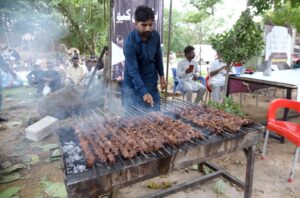 According to Khateeb Jamia, Dr. Ubaid-ur-Rehman Basher the mosque recommends that families planning to attend the event should limit the number of guests to 100 or 120 individuals, with an equal number of men and women, and prioritize Islamic teachings while avoiding extravagance by religious teachings. To ensure a successful event, three men and three women from the family should take responsibility for arranging and maintaining order, with one man and one woman appointed to oversee the event and ensure that the mosque administration does not participate in the ceremony.
According to Khateeb Jamia, Dr. Ubaid-ur-Rehman Basher the mosque recommends that families planning to attend the event should limit the number of guests to 100 or 120 individuals, with an equal number of men and women, and prioritize Islamic teachings while avoiding extravagance by religious teachings. To ensure a successful event, three men and three women from the family should take responsibility for arranging and maintaining order, with one man and one woman appointed to oversee the event and ensure that the mosque administration does not participate in the ceremony.
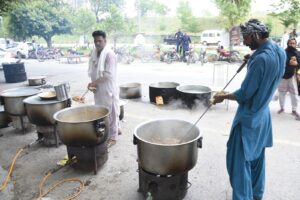 Khateeb Dr. Ubaid-ur-Rehman, encouraged families to link their daughters’ departure with the call to prayer and salah, adding that superstitions will decrease and wastefulness and burden on poor families will be eliminated. After the ceremony concludes, the mosque must be thoroughly cleaned, and arrangements can be made for a departure ceremony that meets the family’s needs. The initiative aims to establish a dignified system for white-clothed people and relieve the burden on poor fathers of marrying off their daughters.
Khateeb Dr. Ubaid-ur-Rehman, encouraged families to link their daughters’ departure with the call to prayer and salah, adding that superstitions will decrease and wastefulness and burden on poor families will be eliminated. After the ceremony concludes, the mosque must be thoroughly cleaned, and arrangements can be made for a departure ceremony that meets the family’s needs. The initiative aims to establish a dignified system for white-clothed people and relieve the burden on poor fathers of marrying off their daughters.
Mosques are institutions that never shut down. They are open 24/7, 365, and that’s what makes them a unique resource in times of need. The members of its management are the best data banks for its local community, their issues and all possible solutions to those issues. They know the deserving, the weak and those in need usually on a very personal level, and can identify pretenders quicker than anybody else. Mosques are centers of spiritual development. They have the potential to become centers of social development.


